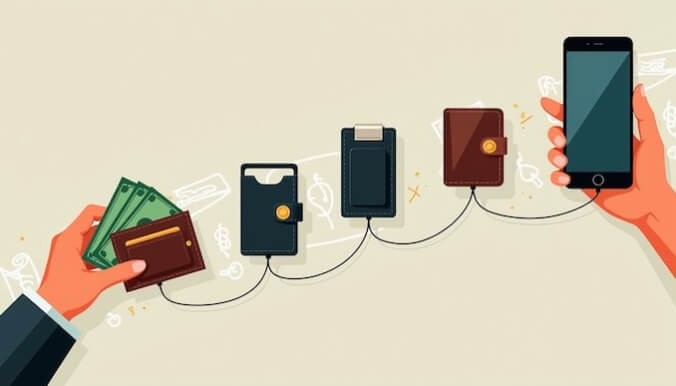NFTs and the New Star Power: How American Entertainers Are Monetizing Digital Assets
Reinvention through technological adoption.
Image credits: StockCake CelebritiesTech NFTs
In recent years, the entertainment landscape in the United States has witnessed a significant transformation with the emergence of digital assets, particularly non-fungible tokens (NFTs). These unique digital certificates of ownership, verified on blockchain technology, have created novel avenues for entertainers to connect with audiences and monetize their creative work in previously unimaginable ways.
The Digital Revolution in Entertainment: Beyond Dollar to Bitcoin Transitions
Throughout history, entertainment professionals have embraced emerging technologies with remarkable agility, evolving from radio broadcasts to digital streaming platforms. Today’s blockchain technology presents the industry’s newest frontier, as performers increasingly utilize dollar to bitcoin conversion services to participate in the digital asset economy, where NFTs emerge as a centerpiece of this technological renaissance. Creative talents spanning music, cinema, television, and digital media leverage these non-fungible tokens to establish verifiable ownership of their digital creations while fostering unmediated connections with their audience base.
Unlike physical memorabilia or traditional digital downloads, NFTs provide verifiable scarcity and authenticity in the digital realm. This fundamental change in how creative content can be owned and transferred has profound implications for how entertainers approach their careers and business models.
Transforming Creative Economics
The traditional entertainment industry structure often placed intermediaries between creators and consumers. The blockchain ecosystem disrupts this paradigm by enabling direct-to-fan relationships. Entertainers can now release limited digital collectibles, exclusive content, or virtual experiences directly to their audience without necessarily requiring the involvement of studios, labels, or production companies.
This shift in economics benefits entertainers who previously might have received only a fraction of the revenue generated from their creative output. By minting their digital assets, performers can capture a larger percentage of initial sales and—perhaps more significantly—continue earning from secondary market transactions through programmed royalties.
Building Community Through Digital Ownership
Beyond the financial aspects, NFTs create new dimensions of community engagement. Entertainers use these digital assets to reward dedicated followers with exclusive access and experiences. Virtual meet-and-greets, behind-the-scenes content, and early access to upcoming projects all become possible through ownership of specific tokens.
This community-building aspect proves particularly valuable in an era when authenticity and connection matter immensely to audiences. Digital asset ownership creates a tangible link between entertainers and their most devoted supporters, fostering loyalty that extends beyond passive consumption of content.
-

-

-

-

-

-

-

-

-

-

-

-

-

-

-

-

-

-

-

-

-

-

-

-

-

-

-

-

-

-

-

-

-

-

-

-

-

-

-

-








































